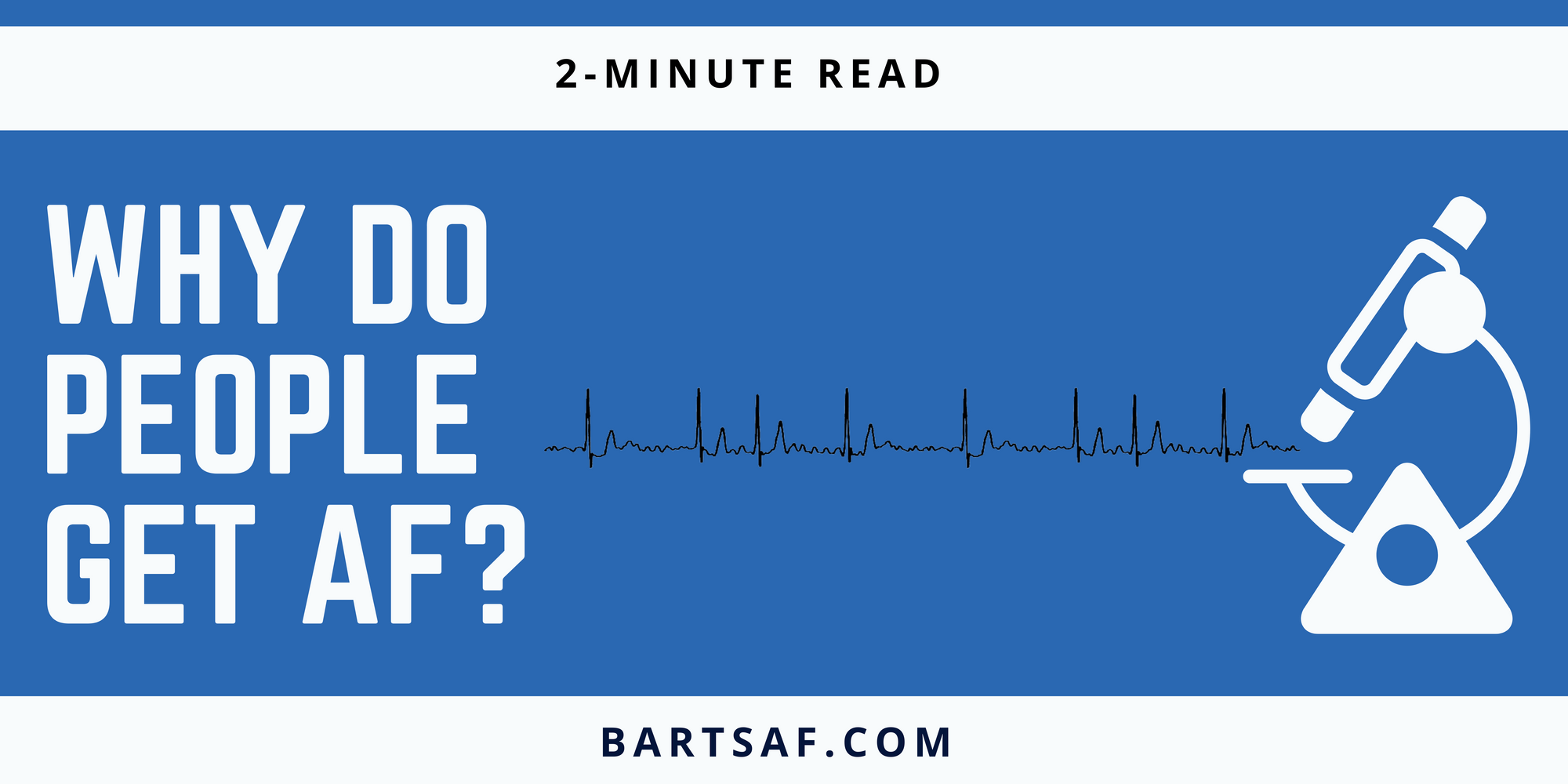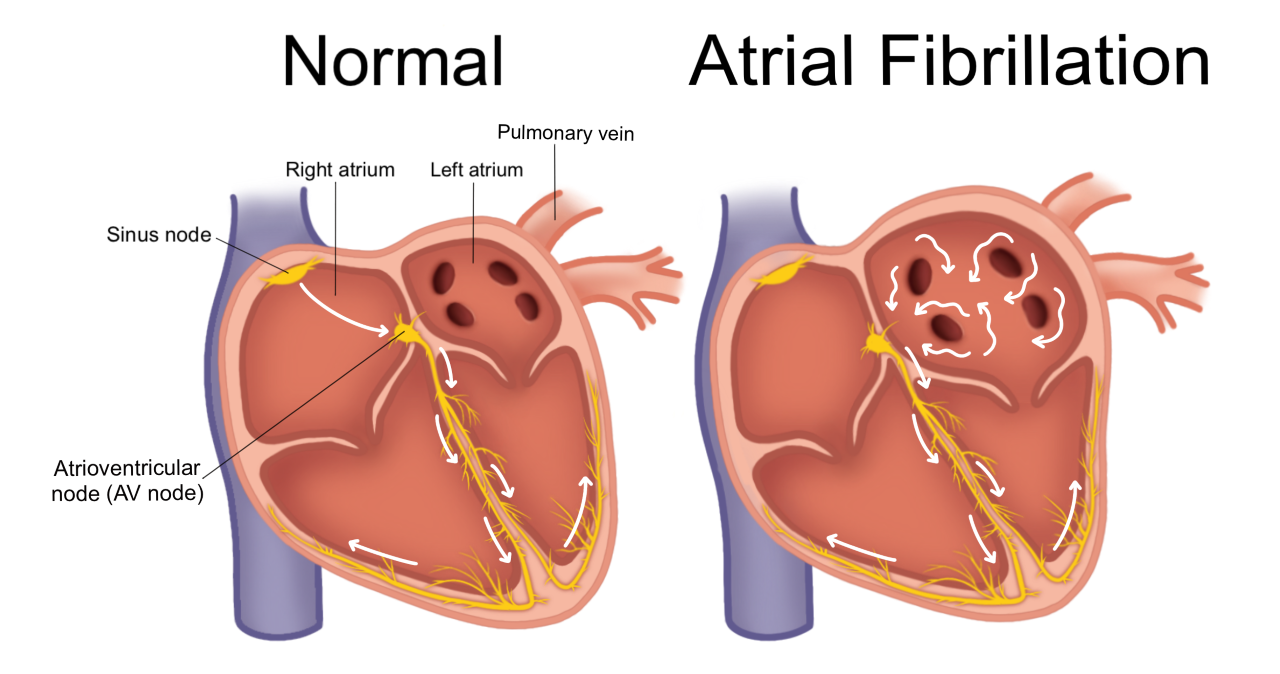Yes, but why do people get AF?

Good question! There isn’t a direct cause (like falls cause broken bones or bacteria cause infections) but there are risk factors- which means if you have a specific risk factor, your chances of getting AF goes up.
These include
- high blood pressure
- other heart diseases such as heart valve disease
- heart muscle diseases or coronary artery disease
- diabetes.
There is a more comprehensive list on the British Heart Foundation website if you’re interested but I think a more interesting question is how do these sorts of problems effect the heart to actually cause AF. Again, this is an area of active research and there are lots of different possible explanations. There is probably more than one way but these cardiovascular conditions alter the size and pressures in the left-sided atrium [upper heart chamber]. This is the area of the heart connected to the pulmonary veins. The left atrium and pulmonary veins are the most common originating point for AF and are the target in AF ablation treatment. Your doctor may measure the size of the left atrium as that has been shown to predict how deeply the AF is entrenched and also the likelihood of success from AF ablation treatment.

